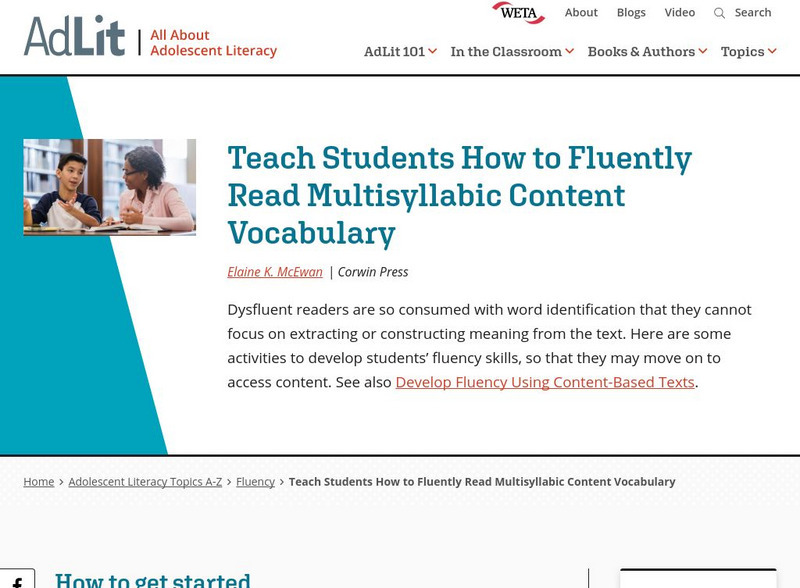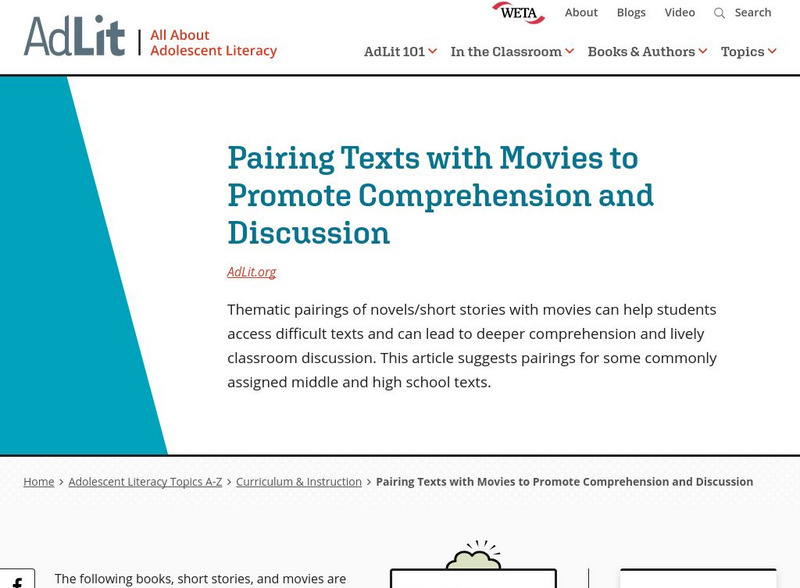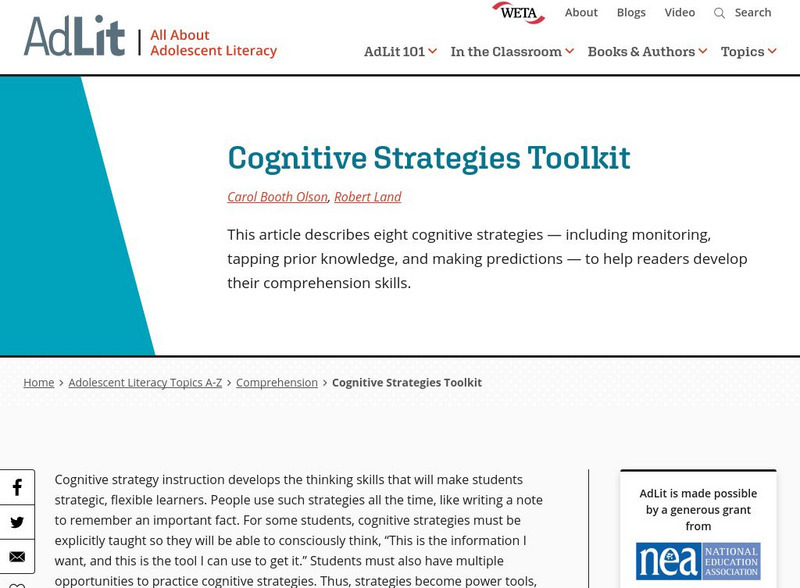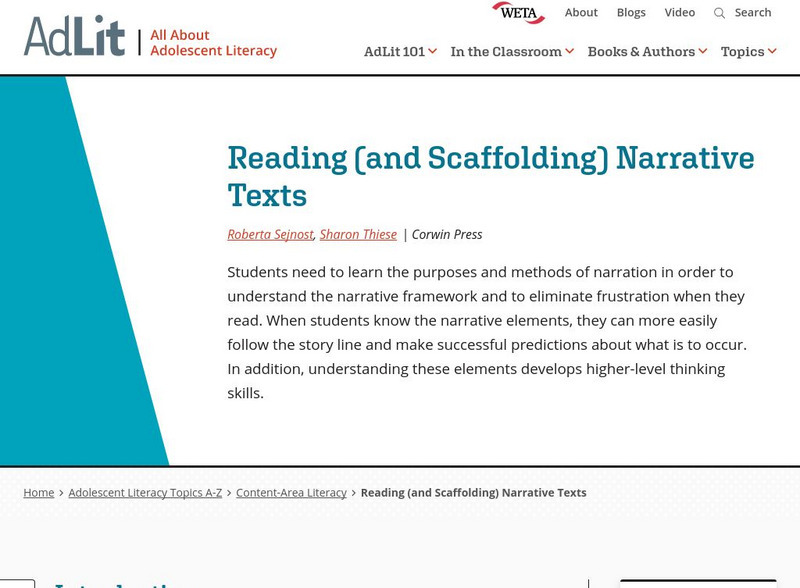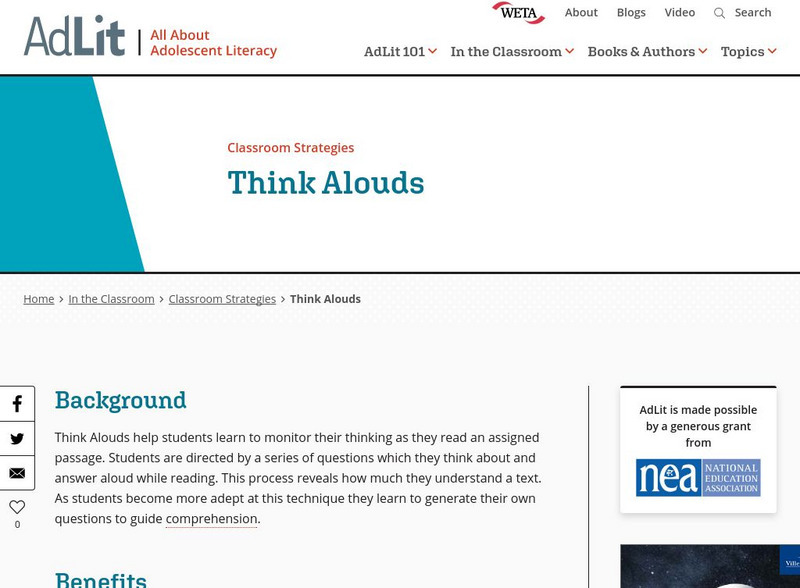AdLit
Ad lit.org: Reading Discussion Guide: Bloomability by Sharon Creech
Bloomability, by Newbery medalist Sharon Creech, tells the coming-of-age tale of Dinnie, a thirteen-year-old girl uprooted from her parents' nomadic lifestyle to spend a year in Switzerland. Dinnie is used to change, since her whole life...
AdLit
Ad lit.org: Reading Discussion Guide: To Dance: A Ballerina's Graphic Novel
To Dance is a graphical memoir of Siena Cherson Siegel, a young girl growing up in Puerto Rico who eventually came to New York to study with the School of American Ballet. It captures the passion of the artist, as well as the discipline...
AdLit
Ad lit.org: Reading Discussion Guide: Betsy and the Emperor by Staton Rabon
Fourteen-year-old English girl Betsy Balcombe and her family have an unusual houseguest: Napoleon Bonaparte, former emperor of France and the most feared man on earth. Once lord and master to eighty-two million souls, now, in 1815,...
International Reading Association
Reading Online: Fostering High Levels of Reading and Learning in Secondary
In this commentary, the author, Michael Graves, Professor at the University of Minnesota, seeks to include findings related to adolescent reading related to reading for understanding and showing "where" to fit in reading in the secondary...
Other
Teaching Struggling Adolescent Readers to Comprehend What They Read [Pdf]
This textbook chapter offers strategies for helping adolescent readers understand their reading and build skills to allow them to read to learn. PDF (requires Adobe Reader).
AdLit
Ad lit.org: Use Cooperative Learning Groups to Engage Learners
When teachers structure cooperative learning groups as part of the overall reading program, they also open the door to a multiple intelligences approach to literacy, which is inherent in cooperative learning. This article offers guidance...
AdLit
Ad lit.org: Teach Students How to Fluently Read Multisyllabic Content Vocabulary
Dysfluent readers are so consumed with word identification that they cannot focus on extracting or constructing meaning from the text. Here are some activities to develop students' fluency skills, so that they may move on to access content.
AdLit
Ad lit.org: Key Literacy Component: Morphology
Morphology describes how words are formed from building blocks called morphemes, the smallest unit of meaning in a word. Students who don't understand this structure have trouble recognizing, understanding, and spelling words. Find out...
AdLit
Ad lit.org: Teaching Word Meanings as Concepts
The most effective vocabulary instruction teaches word meanings as concepts; it connects the words being taught with their context and with the students' prior knowledge. Six techniques have proven especially effective: Concept...
PBS
Colorin Colorado: Preparing El Ls to Be 21st Century Learners
This research article shares the importance of incorporating technology for ELL students, alongside non-ELL pupils. Strategies to facilitate a 21st Century technology-enhanced classroom are included.
Other
Ncld: Student Voices: A Study of Young Adults With Learning and Attention Issues
This site shares research about effective approaches for instructing adolscents who possess spefiic learning disabilities. Research is available via the video and report links found on the site.
Other
All4ed.org: Urgent but Overlooked: Literacy Crisis Among Adolescent El Ls
English language learners (ELLs) represent more than 10% of the national pre-K through 12th grade enrollment, and more than 70% of these ELLs fail to develop strong literacy skills. To increase this group's educational, college, and job...
AdLit
Ad lit.org: What's the Big Idea? Integrating Young Adult Literature
Drawing on New York City teachers' experiences, this article examines three ways to effectively integrate young adult literature into the curriculum: use core texts (usually novels, but also other genres as well) that the entire class...
AdLit
Ad lit.org: Pairing Texts With Movies to Promote Comprehension and Discussion
Thematic pairings of novels/short stories with movies can help students access difficult texts and can lead to deeper comprehension and lively classroom discussion. This article suggests pairings for some commonly assigned middle and...
AdLit
Ad lit.org: What Schools and Students Can Do to Foster College Readiness
If schools and students understand college readiness in a more comprehensive way, they can do more to develop the full range of capabilities and skills needed to succeed in college. Click on Classroom Strategies on the left of the page...
AdLit
Ad lit.org: Cognitive Strategies Toolkit
This article describes eight cognitive strategies - including monitoring, tapping prior knowledge, and making predictions - to help readers develop their comprehension skills.
AdLit
Ad lit.org: Key Literacy Component: Vocabulary
What's in a word? Mastery of oral and written vocabulary promotes comprehension and communication. Find out how proper instruction can help students who struggle with vocabulary.
AdLit
Ad lit.org: Reading (And Scaffolding) Narrative Texts
Students need to learn the purposes and methods of narration in order to understand the narrative framework and to eliminate frustration when they read. When students know the narrative elements, they can more easily follow the story...
AdLit
Ad lit.org: Classroom Strategies: Think Alouds
Think Alouds help students learn to monitor their thinking as they read an assigned passage. Students are directed by a series of questions which they think about and answer aloud while reading. This process reveals how much they...
AdLit
Ad lit.org: Why Students Think They Understand When They Don't
Students often think they understand a body of material and, believing that they know it, stop trying to learn more. But come test time, it turns out they really don't know the material very well at all. Can cognitive science tell us...
AdLit
Ad lit.org: Classroom Strategies: Double Entry Journals
The Double-Entry Journal strategy enables students to record their responses to text as they read. Students write down phrases or sentences from their assigned reading and then write their own reaction to that passage. The purpose of...
AdLit
Ad lit.org: Classroom Strategies: Monitoring/clarifying
The Monitoring/Clarifying strategy teaches students to recognize when they don't understand parts of a text and to take necessary steps to restore meaning. This technique is a component of the Reciprocal Teaching model in which teachers...
AdLit
Ad lit.org: Classroom Strategies: Paired Reading
The Paired Reading strategy encourages peer teaching and learning. Students are divided into pairs and read along together or take turns reading aloud to each other. Pairs can have the same reading ability or can include a more fluent...
AdLit
Ad lit.org: Classroom Strategies: Paragraph Shrinking
Paragraph Shrinking is an activity developed as part of the Peer-Assisted Learning Strategies (PALS). PALS is a classwide peer tutoring program in which teachers carefully partner a student with a classmate. The Paragraph Shrinking...





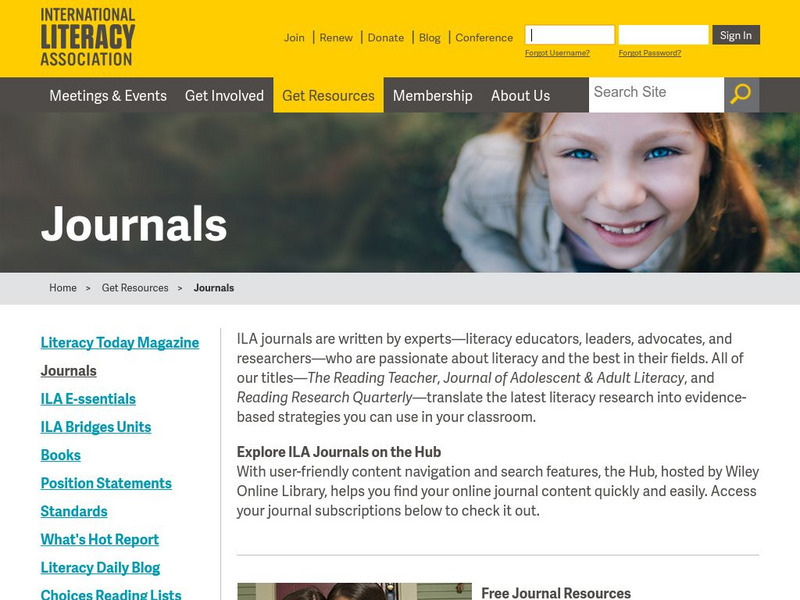
![Teaching Struggling Adolescent Readers to Comprehend What They Read [Pdf] Professional Doc Teaching Struggling Adolescent Readers to Comprehend What They Read [Pdf] Professional Doc](https://content.lessonplanet.com/knovation/original/123321-8921c78c9f381d2b1230d0e26cd2c458.jpg?1661365851)

